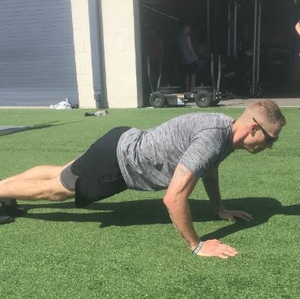
Research Highlights:
- Adults born with a hole in their heart may lose 20% or more of their exercise capacity regardless of surgical repair.
- Young adults with the defect are known to have poorer exercise ability than their healthy counterparts, however, it is unclear if exercise capacity would deteriorate with age.
- Based on these findings, researchers suggest adults born with the heart defect continue outpatient follow-up care for their entire life.
Embargoed until 4 a.m. CT/5 a.m. ET Wednesday, Sept. 23, 2020
DALLAS, Sept. 23, 2020 — A common congenital heart defect may reduce your ability to exercise especially as you grow older, regardless of whether it was corrected with surgery or previously deemed too small for treatment, according to research published today in the Journal of the American Heart Association, an open access journal of the American Heart Association.
A ventricular septal defect occurs when a hole in the wall separating the pumping chambers of the heart does not close. It can be surgically closed or left alone if determined to be harmless. Researchers know that people born with a ventricular septal defect have poorer functional exercise than their healthy peers, however, it has not been clear whether this exercise capacity would degenerate as they age.
A new study from Denmark suggests that people 40 years and older with ventricular septal defects – surgically repaired or not – have worse functional exercise capacity than people born without the defect, and the difference in exercise capacity appears to increase with age.
“Most congenital heart defect patients are discharged from follow-up care as they reach adulthood, yet many experienced limitations during physical activity,” said lead author Marie Maagaard, M.D., Ph.D., a researcher at Aarhus University Hospital in Aarhus, Denmark. “These results underline the importance of keeping adults with ventricular septal defects in follow-up programs and including exercise tests in the assessment of their potential deteriorating functional capacity.”
Functional exercise capacity is an estimate of what a person’s heart will allow them to do, regardless of other physical issues, and is based upon the heart’s ability to pump sufficient amounts of oxygen-rich blood to replace expended oxygen in the proper balance, thus allowing normal physical activity.
Researchers evaluated differences in functional exercise capacity using standard cardiopulmonary exercise testing among 30 patients with surgically repaired ventricular septal defects, 30 others who had small but unrepaired defects and compared them to two groups of 30 healthy adults without the heart defect who were matched with patients by age and gender. All the participants were between age 40 and 75.
Among their findings:
- Compared with healthy adults, exercise capacity was 29% lower for older patients with surgically repaired ventricular septal defects after age 40.
- Patients in their mid-20s with surgically repaired ventricular septal defects have 18% diminished capacity compared with their healthy counterparts.
- Older participants with unrepaired ventricular septal defect had 21% lower capacity; while younger patients with an unrepaired defect had 17% lower capacity than their healthy peers.
- Overall, all participants – both with repaired and unrepaired defects – had markedly lower exercise capacity at low intensity exercise levels; detectable at 20% of their maximal effort. This corresponds with impairment at exercise levels like that of minor daily activities.
Maagaard emphasized that the data from the repaired group also cannot be directly compared with patients who have undergone more recent procedures, as advances have been made in operative procedures and technology in recent decades.
“The next step to better understand the physiology behind this study’s findings could be a combination of cardiac catheterization with upright bicycle exercise, performed in surgically repaired and unrepaired ventricular septal defect patients and their healthy counterparts,” she said. “Furthermore, randomized clinical trials of potential therapeutic options are also important.”
These results on ventricular septal defects are the latest in a growing pool of research on the topic. It supports the 2018 American Heart Association/American College of Cardiology Guideline for the Management of Adults With Congenital Heart Disease, which recommends adults with congenital heart disease receive regular follow-up care in specialized cardiology centers on a regular basis.
Co-authors are Filip Eckerström, M.D.; Nicolai Boutrup, M.D.; Vibeke Hjortdal, M.D, Ph.D.; D.Msc. The study was funded by Aarhus University, Karen Elise Jensen’s Fund and Novo Nordisk Foundation.
Additional Resources:
Statements and conclusions of study authors published in American Heart Association scientific journals are solely those of the study authors and do not necessarily reflect the Association’s policy or position. The Association makes no representation or guarantee as to their accuracy or reliability. The Association receives funding primarily from individuals; foundations and corporations (including pharmaceutical, device manufacturers and other companies) also make donations and fund specific Association programs and events. The Association has strict policies to prevent these relationships from influencing the science content. Revenues from pharmaceutical and device corporations and health insurance providers are available at https://www.heart.org/en/about-us/aha-financial-information.
About the American Heart Association
The American Heart Association is a relentless force for a world of longer, healthier lives. We are dedicated to ensuring equitable health in all communities. Through collaboration with numerous organizations, and powered by millions of volunteers, we fund innovative research, advocate for the public’s health and share lifesaving resources. The Dallas-based organization has been a leading source of health information for nearly a century. Connect with us on heart.org, Facebook, Twitter or by calling 1-800-AHA-USA1.
###
For Media Inquiries and AHA/ASA Expert Perspective: 214-706-1173
Bridgette McNeill: bridgette.mcneill@heart.org
For Public Inquiries: 1-800-AHA-USA1 (242-8721)
heart.org and stroke.org






Leave a Reply